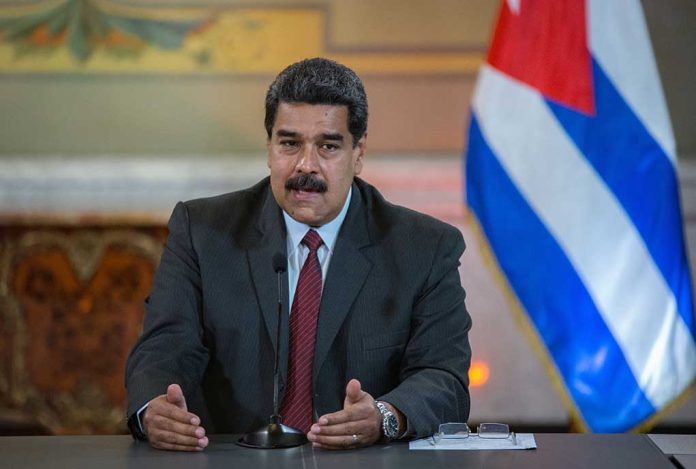
It looks like the Biden administration is trying to pull off a diplomatic balancing act that would make even the most seasoned circus performer dizzy. The recent Venezuelan election has left our esteemed leaders in Washington scratching their heads, trying to figure out how to criticize a potentially rigged election without completely burning bridges. It’s a delicate dance of diplomacy, and we’re here to break down the steps for you. So, grab your popcorn, and let’s dive into this geopolitical tango!
Walking the Line: Criticism Without Confrontation
The Biden administration finds itself in a tricky position following Venezuela’s disputed election. While expressing concerns over the electoral process, they’ve stopped short of declaring it fraudulent or calling for immediate sanctions. This cautious approach seems to be an attempt to keep negotiation channels open with Maduro’s regime.
U.S. officials, along with regional countries, are demanding full, detailed results and transparency for the Venezuelan election. The administration’s response indicates a desire to balance criticism with diplomatic engagement, a strategy that has drawn both praise and criticism from various quarters.
Sanctions: To Impose or Not to Impose?
The U.S. Treasury has released General License 44A, requiring the wind-down of transactions with Venezuela’s state-owned oil company, PdVSA, by May 31, 2024. This move comes as the Biden administration plans to reimpose sanctions on PdVSA and the Venezuelan energy sector due to Maduro’s interference in the election process.
Speaking on the issue, U.S. Secretary of State Antony Blinken stated, “We have serious concerns that the result announced does not reflect the will or the votes of the Venezuelan people.”
However, reimposing sanctions is not without potential consequences. Concerns include possible increases in global oil prices and additional migratory pressure from Venezuela. Some international investors have already begun reducing purchases of Venezuelan oil in anticipation of these sanctions.
Republican Pushback and International Reaction
Republican senators have criticized the administration for easing sanctions on Maduro’s regime, arguing that it undermines efforts to promote democracy in Venezuela. Meanwhile, international observers are still assessing the election results.
The international community is closely watching the situation, with many countries echoing the U.S. call for transparency in the election process. The coming days will be crucial in determining the global response to Venezuela’s contested election.
The Road Ahead: Diplomacy in Uncertain Times
As the situation unfolds, the Biden administration faces the challenge of maintaining diplomatic pressure while avoiding actions that could further destabilize the region. The careful wording of official statements and the measured approach to sanctions reflect this delicate balance.
The coming weeks will likely see continued diplomatic efforts to engage with Venezuela while also pushing for democratic reforms. The success of this strategy remains to be seen, but it’s clear that the Biden administration is committed to a nuanced approach to dealing with this complex international issue.
Sources:
- https://ofac.treasury.gov/media/932826/download?inline
- Biden administration cautiously navigates Venezuela election fallout
- U.S. officials defend their Venezuela strategy
- US Accuses Venezuela of Election Manipulation, Leaves Door Open to Sanctions
More from Around the Web:
Biden Administration Demands Election Transparency in Venezuela
Blinken: ‘Serious Concern’ After Venezuela Election
:







